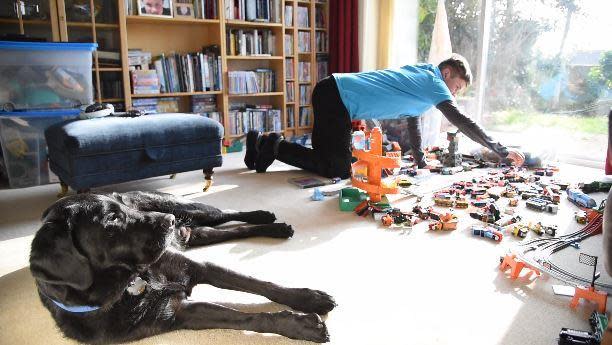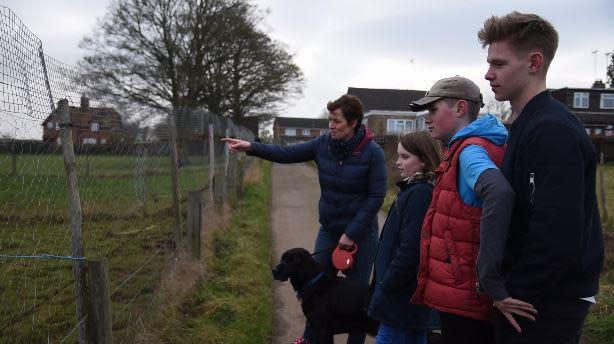How an autistic teenager's life has been transformed by his support dog
14-year-old Adam goes to sleep at night in a tent in his bedroom. Lying by his side is Grant, a rambunctious black Labrador, who has been Adam’s support dog for the last six years.
Adam lives in Northamptonshire with his parents and two siblings. He was three years old when he was diagnosed with autism.

His mother, Diane, told the Independent that reaching a diagnosis was a big hurdle cleared for the family. Yet following the closure of their local support group due to lack of funds, they had to search for other help available for Adam. “It’s very much trial and error - going out there yourself and finding what’s going to work for you,” she said.
In 2009, the family were at home watching Crufts when they saw an assistance dog working with a child with autism. Inspired, they started a rigorous application process with Sheffield-based charity Support Dogs.
Autism assistance dogs are trained to provide safety and facilitate a more independent and socially inclusive life for both the child with autism and their family. Charities like Support Dogs, who provide ongoing assistance to the families they work with, have long waiting lists of applicants.

In May 2011, after completing his training, Grant joined the family as Adam's own support dog. According to Diane and Peter, Adam’s father, the benefits were immediately visible. The two took to each other instantly, and were soon inseparable. “Having Grant really relieved a lot of that anxiety, helped his self-esteem, and helped him feel a lot more confident,” said Peter.
Grant supports Adam in many ways. Out in public, he ensures Adam doesn’t run away when he feels stressed, and makes sure he crosses the road safely. Before Grant joined the family, Adam’s anxiety made being in crowded places difficult.
At home, Grant helps by sleeping alongside Adam, keeping him calm. “It’s a big step because for a long time Adam was in our bedroom. He was too scared to sleep on his own,” said Diane.

And for brother Charlie and sister Beatrice, Grant's arrival has brought the siblings closer together. “He’s honestly lovely,” said Charlie. “He helps us out all the time, everywhere we go.”
“Adam interacts with us more, he’s less anxious,” said Charlie. “We never used to be able to take him for a family shop, and now he genuinely enjoys doing it.”
Despite autism affecting a high proportion of people in the UK, the government invests just £4 million per year into researching the condition. This works out at £6 per person with autism; a figure the National Autism Project blasts as “totally inadequate and unacceptably low compared with other high-impact conditions and by international standards.”
Grant's impact on both Adam and his family goes to show just how beneficial support dogs can be. Beatrice notices how positively people react when Adam and Grant are out in public together. "I've never seen anyone who has called him weird," she said. "As Lewis Caroll said: He’s not weird, his reality is just different to ours."

